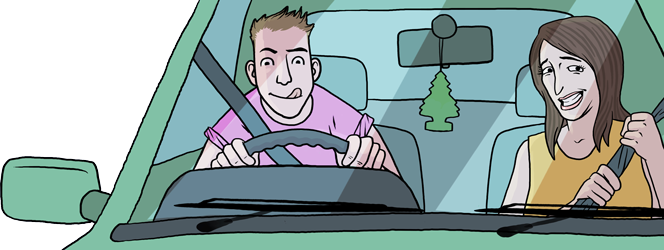
Peer pressure
So much of a young person's identity is defined by the perception and acceptance of others. You've been there - I'm still lingering on the edge of there.
That makes it very hard to stand up for a still-developing moral code when others disagree. Your child knows he shouldn't jump the lights and wouldn't if he was driving alone, but now Tasha's in the passenger seat and she's teasing him because the last guy she went out with had a Mazda.
The problem doesn't start and end with being pressured to do risky things - it's also the encouragement to ignore danger. That's as simple as being more likely to fiddle with the stereo when there are other people in the car. These silly mistakes can have serious consequences and are much harder to be vigilant for than just telling your child not to be goaded into speeding.
How to help your child deal with peer pressure
Tell them to blame you
Standing up to friends is a very hard thing to ask a young person to do. Instead of telling them to 'know their own mind' and 'stick to their guns' - which requires them to expose themselves to ridicule - help them come up with a way to blame you.
"My parents pay for my insurance and they'll take my car if I get a ticket."
"My mum's been a real cow lately, if I do anything to this car she'll kill me."
Get black box insurance
Black box insurance can help in a big way here. Being able to tell their friends that the box will know if they speed or corner badly is a great way of passing the heat.
The fact that they can lose their discount is they drive dangerously is a brilliant point too - what 20 year old doesn't understand the importance of cash flow? That gives your young driver the ammunition and the motivation they need to quieten any pressurising mates.









